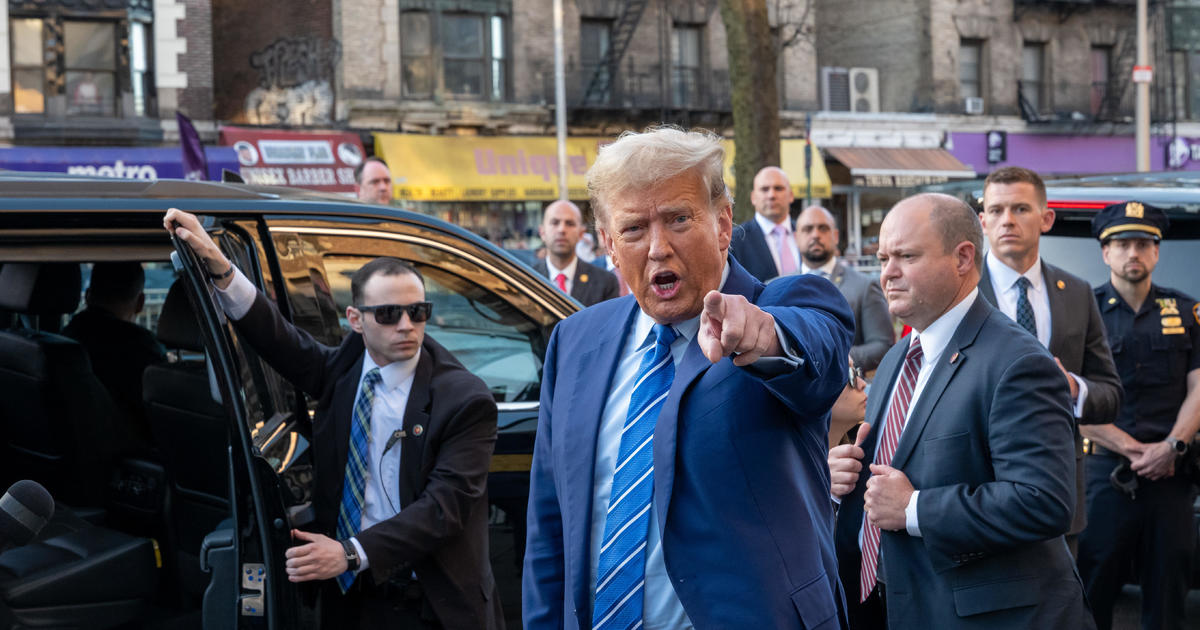If former President Donald Trump chooses to testify in his New York criminal trial, Manhattan District Attorney Alvin Bragg says prosecutors want to question Trump about a host of his recent high-profile legal defeats to attack his credibility, according to a filing that was made public Wednesday.
The list of misconduct includes the almost half billion dollar civil fraud judgment recently handed down in another New York court, a pair of unanimous civil federal jury verdicts finding him liable for defamation and sexual abuse of the writer E. Jean Carroll, gag order violations and sanctions for what a judge concluded was a “frivolous, bad faith lawsuit” against Hillary Clinton.
The notice is for what’s called a Sandoval hearing, when a judge determines the permissible scope of cross-examination and whether a defendant’s prior bad acts can be raised if they choose to testify. If Trump chooses not to testify, these topics are unlikely to be raised by prosecutors at trial. The judge has not said publicly when that hearing will be held.
Trump’s attorneys have indicated they believe these topics should be out of bounds for prosecutors, and the judge in the case will have the final say on which ones are ultimately allowed.
Spencer Platt / Getty Images
Trump has entered a not guilty plea to 34 felony counts of falsification of business records. He has denied all allegations in the case, which centers around reimbursements to a former lawyer for a “hush money” payment during the 2016 presidential election to adult film star Stormy Daniels. Trump has also denied having an affair with Daniels.
Jury selection is currently underway for the trial.
Bragg intends to bring up that Trump previously “testified untruthfully under oath” in the civil fraud case, according to the filing. Specifically, Bragg highlighted that Trump claimed his public comments about Judge Arthur Engoron’s clerk, Allison Greenfield, were about a witness. Engoron held that as “the trier of fact, I find [Trump’s] testimony rings hollow and untrue.”
He also plans to introduce that Trump was found in his civil fraud case to have “repeatedly and persistently falsified business records, conspired to falsify business records, issued fake financial statements, conspired to issue false financial statements and conspired to commit insurance fraud,” according to Bragg’s filing.
Trump has denied all allegations in the civil fraud case and is appealing. He has accused attorneys and prosecutors in each of these cases of pursuing him for political gain.
Trump told reporters on March 25 that he “would have no problem testifying” at the trial.
“Well, it could also make me more popular because the people know it’s a scam,” he said.
However, choosing not to testify cannot be held against him. Under the Fifth Amendment, the jury is prohibited from making an adverse inference if Trump does not take the stand.

